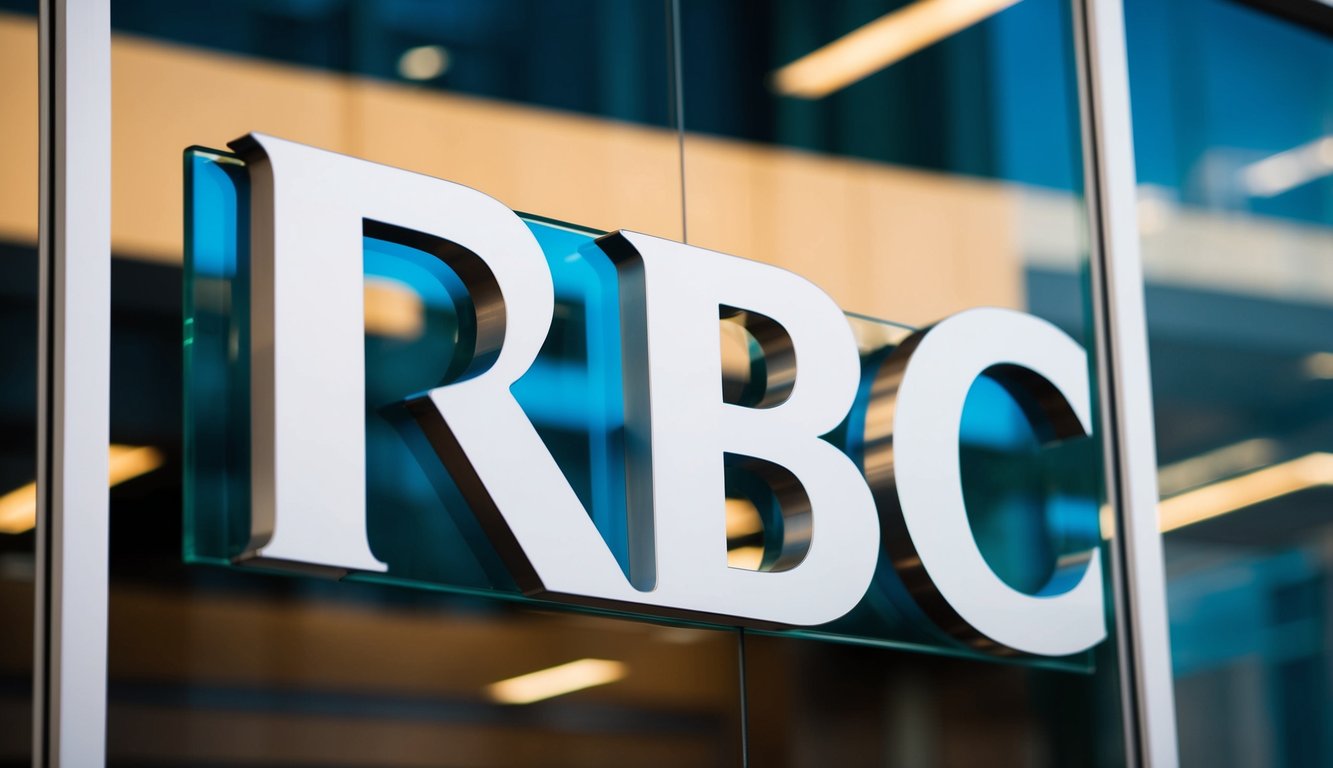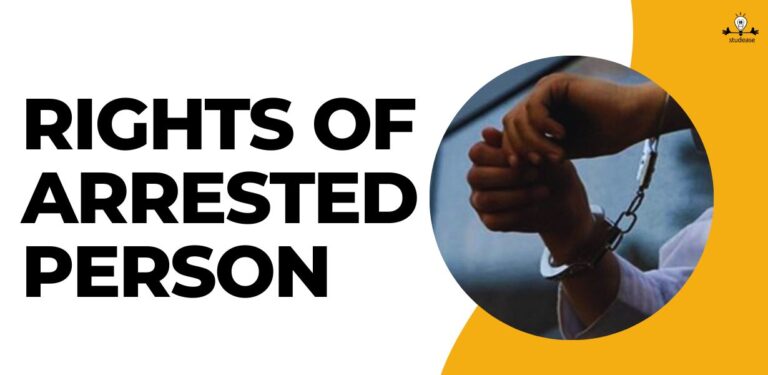150 RBC Interview Questions: Essential Prep for Success

If you’re preparing for an interview with RBC, you’ll want to be as ready as possible. The Royal Bank of Canada is a leading financial institution, and their interviews can be challenging. Mastering common interview questions can give you the edge you need to stand out.
These 150 RBC interview questions cover a wide range of topics and will help you understand what to expect. You might encounter questions about your skills, experience, and how you handle certain situations. Being familiar with these can boost your confidence and show that you’re a strong candidate.
As one of the largest banks in Canada, RBC seeks individuals who can contribute positively. By preparing answers to these questions, you can demonstrate your ability to fit into their team and succeed in their competitive environment.
- Understanding the Interview Process
- General Interview Preparation for RBC Interview
- Common Interview Questions at RBC
- Role-Specific Questions for interview at RBC
- Concluding the RBC Interview
- List of 150 Interview Questions RBC
- Frequently Asked Questions: RBC Interview
- 10 Tips for Job Interview at RBC
Understanding the Interview Process

RBC’s interview process involves multiple stages designed to understand your skills and fit for the role. Each step, from online assessments to final interviews, evaluates specific areas to ensure the best match for the position.
Overview of Online Assessments
Online assessments are a key part of RBC’s hiring method. These tests may include cognitive tasks, situational judgment tests, and personality questionnaires. They help assess your problem-solving skills and how you handle work-related scenarios.
Video-call is often used, enabling responses to questions. To prepare, understand the job’s requirements and practice relevant questions. Mock interviews can also help, simulating real-time responses.
These assessments are typically taken before group or individual interviews, setting a foundation for further evaluation. Focus on completing each task accurately and efficiently to demonstrate your capabilities.
General Interview Preparation for RBC Interview

Research and personal reflection are key in preparing for an interview with the Royal Bank of Canada. Knowing how your career goals align with RBC’s environment can set you apart.
Reflecting on Career Goals
Think carefully about your career goals and how they connect to your desired position at RBC. Ask yourself what you truly want in your professional life. Consider making a list of your top career objectives.
Reflect on how the role at RBC supports achieving these goals. Aligning your aspirations with the job description can help you speak clearly about why you’re a great fit. Be ready to discuss specific skills and experiences you bring to the table.
Having a strong sense of purpose will make your application more compelling. It can also boost your confidence as you go into the interview.
Understanding RBC’s Work Environment
Learn about RBC’s values and work environment to prepare effectively. Check their official website and any recent news. Look into their mission statement, industry standing, and client base.
Understanding the culture and work dynamics at RBC is crucial. This information helps tailor your responses to interview questions. Knowing key aspects of their work environment can demonstrate commitment and interest in the company.
Engage with RBC’s online platforms or reach out to current or former employees. This could provide insights into the day-to-day atmosphere at RBC. Doing this may also help you understand teamwork, career development, and leadership within the organization.
Also Check: Interview Questions Citizens Financial Group
Common Interview Questions at RBC

Preparing for an RBC interview can be crucial in landing the job. Knowing what types of questions to expect can help you focus your preparation on areas like problem-solving skills, customer service scenarios, and your own work history.
Behavioral Questions
Behavioral questions help interviewers understand how you have handled situations in the past. They often focus on problem-solving skills and teamwork.
Here are some examples:
- Describe a time when you faced a challenging situation. How did you handle it?
- Have you ever had to make a difficult decision under pressure?
- How do you prioritize tasks when dealing with multiple responsibilities?
- Tell me about a time you were successful in a team setting.
- How do you handle constructive criticism?
- Describe a situation where you had to adapt to a major change at work.
- Have you ever resolved a conflict at work? How did you do it?
- Give an example of a goal you reached and how you achieved it.
- How do you manage stress in a fast-paced environment?
- What do you do if you disagree with a team member’s approach?
Technical and Operations Questions
For roles involving technical skills and operations, expect questions testing your technical knowledge and process management abilities.
- How do you approach troubleshooting an operational issue?
- Describe a time when you implemented a new technology or system at work.
- What steps do you take to ensure data accuracy in your projects?
- Have you worked with any project management software? Which ones?
- How do you monitor ongoing projects for efficiency and progress?
- What is your method for analyzing business data to make effective decisions?
- Can you describe a successful strategy you developed to improve operations?
- How do you stay updated on the latest technological trends in your field?
- Explain a complex process you have simplified for better efficiency.
- How do you ensure quality control in your work?
Customer Service Scenarios
Customer service roles at RBC may focus on how you handle customer needs and expectations. These questions often explore your interaction and problem-solving skills.
- How would you handle an angry customer who is dissatisfied with a service?
- Describe a time you turned a negative customer experience into a positive one.
- How do you build rapport with a new customer?
- Give an example of how you have gone above and beyond for a customer.
- What do you do if you don’t know the answer to a customer’s question?
- Have you ever dealt with a situation where you had to decline a customer request?
- How do you prioritize customer needs during busy periods?
- Describe your experience with promoting products or services to customers.
- How do you collect customer feedback for service improvement?
- What strategies do you use to resolve a customer’s problem efficiently?
Experience and Background Discussion
This part of the interview often focuses on your previous work experience, skills, and career goals. It’s important to discuss past roles and achievements clearly and confidently.
Reflect on these questions:
- Can you tell me about your previous work experiences related to this position?
- What skills have you gained in your previous jobs that will help you here?
- Describe the biggest challenge you’ve faced in your career.
- Why did you leave your last job?
- How do you see your career developing over the next five years?
- What motivated you to apply for a job at RBC?
- Discuss an achievement you’re particularly proud of from a past job.
- How do your past experiences make you a good fit for this role?
- What have you done to develop your skills over the past year?
- How do you handle feedback on your job performance?
Role-Specific Questions for interview at RBC

Understanding your specific role is key when interviewing at RBC. The focus is often on your experience in the Banking and Financial Services Industry and Wealth Management. These areas require a solid grasp of industry-specific skills and insights.
Banking and Financial Services Industry: RBC
In this field, you should be prepared to discuss your knowledge of banking operations. Questions might explore topics such as loan processing, risk management, and regulatory compliance. Be ready to explain your experience with client interactions and how you handle different financial products.
The industry is rapidly changing due to technology. You may need to talk about how you adapt to new software and digital tools. Highlight any previous work with data analysis, cybersecurity, or blockchain technologies. Showing familiarity with these areas can distinguish you from other candidates.
You may also face questions about how banks ensure customer satisfaction. Sharing specific strategies or past experiences can demonstrate your competence.
Wealth Management Insights
In wealth management, be ready to address client advising and investment strategies. Interviewers might ask about your experience with portfolio management or asset allocation. They want to know how you build relationships with clients and meet their financial goals.
Understanding market trends is crucial. You should discuss your methods for keeping abreast of market movements. Knowledge of investment products, like mutual funds and ETFs, is often necessary.
When it comes to RBC, emphasize your ability to align financial advice with their services. You might detail experiences where you effectively tailored strategies to match client needs.
Concluding the RBC Interview

As the interview wraps up, it’s your chance to leave a strong impression. Be ready to summarize your motivation for joining RBC. Highlight your keen interest in the company’s values and goals.
Speak clearly and confidently about why you want to work at RBC. Share specific reasons that connect RBC’s mission with your career goals.
Prepare a list of questions to ask. This shows your enthusiasm and attention to detail. Inquire about team culture, growth opportunities, or how success is measured.
When asked, “What is your greatest weakness?” focus on how you are working to improve. Provide specific examples, and be honest yet positive.
For “Tell us about yourself,” link your experiences and skills to the role. Keep it concise, focusing on achievements and learnings.
Here are some answer examples to consider:
- “I am drawn to RBC because of its commitment to community service.”
- “My greatest weakness is public speaking, but I am keen to become more confident.”
Effective communication skills are key throughout. Stay genuine and engaged. Use eye contact and body language to show interest.
End the interview by thanking the interviewer for their time. Express enthusiasm for the potential opportunity. This can leave a lasting impression.
With these tips, you stand ready to effectively conclude your interview at RBC.
List of 150 Interview Questions RBC

Part 1: Interview Questions (1-50)
- Talk to us about your proudest achievement. Why was this achievement important?
- Why do you want to work for RBC?
- What are your greatest strengths, and how will they be a fit for our company?
- Tell us about a time you failed. Describe what happened, your approach, and the outcome.
- Last time you failed? And the learning?
- Describe a situation where you had to work as part of a team.
- How do you prioritize your work when you have multiple deadlines?
- What do you know about RBC’s values and culture?
- How do you handle stress and pressure?
- Can you describe a time when you had to adapt to a significant change at work?
- What motivates you to perform at your best?
- Describe a time when you had to deal with a difficult customer.
- How do you approach problem-solving?
- What do you consider to be your biggest weakness?
- How do you keep yourself organized?
- Tell us about a time you went above and beyond for a customer.
- What are your long-term career goals?
- How do you handle constructive criticism?
- Describe a time when you had to make a tough decision.
- What skills do you bring to this position?
- How do you stay current with industry trends and developments?
- Why should we hire you?
- Describe your experience with teamwork.
- How do you define success?
- Tell us about a time you had to meet a tight deadline.
- What do you think makes a great leader?
- How would you describe your communication style?
- What do you know about RBC’s products and services?
- Describe a time when you had to persuade someone to see things your way.
- How do you handle conflicts with coworkers?
- What do you think is the most important quality in a bank employee?
- Describe a time when you had to learn something new quickly.
- How do you approach setting and achieving goals?
- What role do you typically take in group projects?
- Can you provide an example of a time you demonstrated leadership?
- How do you manage your time effectively?
- Describe a situation where you had to analyze data to make a decision.
- What does customer service mean to you?
- How do you deal with ambiguity in the workplace?
- What is your experience with financial products?
- Describe a time when you had to handle multiple tasks at once.
- How do you ensure accuracy in your work?
- What do you enjoy most about working in finance?
- How do you build relationships with clients?
- Describe a time when you received feedback and how you acted on it.
- What strategies do you use to motivate yourself?
- How do you ensure compliance with regulations in your work?
- What is your approach to continuous learning?
- Describe a time when you had to use your analytical skills.
- What do you think sets RBC apart from its competitors?
Sample Answers for Questions 1-50
- Proudest Achievement: My proudest achievement was leading a project that improved our customer service response time by X%. This was important because it significantly enhanced customer satisfaction and loyalty, ultimately contributing to higher sales.
- Why RBC: I want to work for RBC because of its commitment to community involvement and innovation in banking. I admire RBC’s dedication to sustainability and its efforts to support diverse communities.
- Greatest Strengths: My greatest strengths are my analytical skills and my ability to communicate effectively. These strengths align with RBC’s focus on providing data-driven solutions and excellent customer service.
- Time You Failed: I once miscalculated a financial projection, which led to a missed deadline. I immediately took responsibility, communicated with my team, and we worked together to adjust the plan. This taught me the importance of double-checking my work.
- Last Time You Failed: Recently, I underestimated the time needed for a project, which resulted in a rushed presentation. I learned to better assess timelines and communicate with my team about progress.
- Team Situation: In my last job, I collaborated with a cross-functional team to launch a new product. We held regular meetings to ensure everyone was aligned and successfully launched on time.
- Prioritizing Work: I use a task management tool to list my tasks by deadline and importance. I tackle high-priority items first while setting aside time for unexpected tasks.
- RBC Values: I know that RBC values integrity, diversity, and innovation. These values resonate with me, and I strive to embody them in my professional life.
- Handling Stress: I handle stress by maintaining a positive outlook and breaking tasks into manageable parts. I also practice mindfulness techniques to stay focused.
- Adapting to Change: When our company underwent a restructuring, I took the initiative to learn new software that was introduced. This helped my team transition smoothly.
- Motivation: I am motivated by challenges and the opportunity to learn new skills. I thrive in environments where I can contribute to team success.
- Difficult Customer: I once dealt with a frustrated customer by actively listening to their concerns, empathizing, and offering a solution that met their needs. This turned their experience into a positive one.
- Problem-Solving Approach: I approach problem-solving by first identifying the root cause, brainstorming potential solutions, and then evaluating the best option based on data.
- Biggest Weakness: My biggest weakness is X. To improve, I’ve taken workshops and practiced in smaller settings to build my confidence.
- Organization: I keep a detailed calendar and use project management tools to track tasks and deadlines, ensuring I stay on top of my responsibilities.
- Going Above and Beyond: I once stayed late to help a customer finalize a loan application, ensuring they met their deadline. They appreciated the extra effort, and it strengthened our relationship.
- Long-Term Goals: My long-term career goal is to become a financial advisor, helping clients achieve their financial goals while contributing to the growth of RBC.
- Constructive Criticism: I view constructive criticism as an opportunity for growth. I actively seek feedback and use it to improve my performance.
- Tough Decision: I had to decide whether to take a job offer that was a significant pay increase but would require relocating. I weighed the pros and cons and ultimately chose to stay for my family’s stability.
- Skills for the Position: I bring strong analytical skills, excellent communication abilities, and a customer-focused mindset, all of which align with the needs of this position.
- Staying Current: I subscribe to industry newsletters, attend webinars, and participate in professional groups to stay informed about the latest trends.
- Why Hire Me: You should hire me because I bring a unique blend of skills, a strong work ethic, and a passion for helping clients achieve their financial goals.
- Experience with Teamwork: I have extensive experience working in teams, whether in project settings or day-to-day operations, always focusing on collaboration and open communication.
- Defining Success: I define success as achieving personal and professional goals while maintaining a healthy work-life balance.
- Tight Deadline: I once had to complete a report in two days instead of a week due to an unexpected request. I organized my tasks and communicated with my team to delegate parts of the work.
- Great Leader: A great leader inspires their team, communicates effectively, and leads by example. They also empower others to take ownership of their work.
- Communication Style: I would describe my communication style as clear and direct. I believe in being transparent and ensuring everyone is on the same page.
- RBC Products: I know that RBC offers a wide range of products, including personal and commercial banking, wealth management, and investment services.
- Persuading Someone: I once had to convince a colleague to adopt a new software tool. I demonstrated its benefits and how it would save time, leading them to agree.
- Conflict Resolution: I handle conflicts by addressing them directly and calmly, seeking to understand the other person’s perspective while finding a compromise.
- Important Quality: The most important quality in a bank employee is integrity. Trust is essential in finance, and clients need to feel confident in their advisors.
- Learning Quickly: When our team adopted a new CRM system, I dedicated extra hours to learn its features and then trained my colleagues, which improved our efficiency.
- Setting Goals: I set achievable and regularly review my progress to stay on track.
- Group Projects Role: I typically take on a coordinator role, ensuring tasks are delegated effectively and that the team stays aligned with our objectives.
- Demonstrating Leadership: I led a volunteer project that organized a community event. I coordinated with various stakeholders and ensured we met our goals.
- Time Management: I prioritize tasks based on urgency and importance, using a combination of to-do lists and digital tools to keep track of my responsibilities.
- Analyzing Data: I analyzed customer feedback data to identify trends and recommend improvements to our service offerings, which led to a X% increase in satisfaction.
- Customer Service Meaning: Customer service means going above and beyond to meet clients’ needs and ensuring they feel valued and understood.
- Dealing with Ambiguity: I approach ambiguity by gathering as much information as possible, consulting with others, and being adaptable in my solutions.
- Experience with Financial Products: I have experience with various financial products, including loans, mortgages, and investment accounts, which I believe will be beneficial in this role.
- Multiple Tasks: I once juggled multiple client accounts while preparing for an audit. I used prioritization and effective communication to manage my workload successfully.
- Ensuring Accuracy: I double-check my work and utilize checklists to ensure everything is accurate before submitting reports or documents.
- Enjoying Finance: I enjoy the dynamic nature of finance and the opportunity to help clients achieve their financial goals.
- Building Client Relationships: I build relationships by actively listening, understanding their needs, and providing tailored solutions that make them feel valued.
- Receiving Feedback: After receiving feedback on a presentation, I took the time to revise my approach and practiced more, leading to improved performance in future presentations.
- Motivation Strategies: I set personal challenges and celebrate small wins to keep myself motivated and engaged in my work.
- Compliance with Regulations: I stay informed about regulations through continuous training and ensure that my work adheres to all compliance standards.
- Continuous Learning: I believe in continuous learning and often take online courses and attend workshops to enhance my skills and knowledge.
- Using Analytical Skills: I once used my analytical skills to assess market trends, which helped my team make informed decisions about product offerings.
- RBC’s Competitive Edge: I believe RBC stands out due to its commitment to innovation, customer service, and strong community involvement.
Also Check: Interview Questions Charles Schwab Corporation
Part 2: Interview Questions (51-100)
- What do you think are the biggest challenges facing the banking industry today?
- How do you handle repetitive tasks?
- Describe a time when you had to deliver bad news.
- What is your understanding of risk management in banking?
- How do you ensure confidentiality in your work?
- What role does technology play in modern banking?
- Describe your experience with financial analysis.
- How would you handle a situation where you disagree with a supervisor?
- What is your approach to networking?
- Describe a time you had to mentor someone.
- How do you measure your own performance?
- What do you think is the future of banking?
- How do you approach customer feedback?
- Describe a time when you had to make a quick decision.
- What is your experience with project management?
- How do you handle a high-pressure work environment?
- What do you believe is the key to effective teamwork?
- Describe a time when you had to persuade a group to change their approach.
- What are your thoughts on sustainability in banking?
- How do you ensure effective communication in a remote work setting?
- Describe a time when you had to analyze a complex problem.
- What are your thoughts on diversity and inclusion in the workplace?
- How do you handle a situation where a team member is not contributing?
- What is your experience with compliance and regulatory issues?
- Describe a time when you had to adjust your approach based on feedback.
- How do you stay motivated during repetitive tasks?
- What is your approach to handling sensitive information?
- Describe a time when you had to deal with an ethical dilemma.
- How do you keep your skills updated in a rapidly changing environment?
- What do you think is the most important trend in banking right now?
- How do you approach building trust with clients?
- Describe a time when you had to collaborate with a difficult colleague.
- How do you handle competing priorities?
- What is your experience with budgeting and forecasting?
- Describe a time you had to implement a new process.
- How do you ensure your work aligns with company goals?
- What do you think is the role of a bank in the community?
- How do you handle a situation where you have made a mistake?
- Describe a time when you had to deliver a presentation to senior management.
- What is your experience with customer relationship management (CRM) systems?
- How do you approach goal setting?
- Describe a time when you had to analyze market trends.
- What do you think is the most rewarding aspect of working in finance?
- How do you handle situations where you lack information?
- Describe a time when you had to negotiate a deal.
- How do you approach risk assessment?
- What are your thoughts on the impact of digital banking?
- How do you ensure that you meet client expectations?
- Describe a time when you had to lead a project with limited resources.
- How do you balance short-term and long-term goals in your work?
Sample Answers for Questions 51-100
- Biggest Challenges in Banking: The biggest challenges facing the banking industry today include cybersecurity threats, regulatory changes, and the need for digital transformation to meet customer expectations.
- Handling Repetitive Tasks: I approach repetitive tasks by finding ways to streamline processes and automate where possible. I also set small goals to keep myself engaged.
- Delivering Bad News: I had to inform a client that their loan application was denied. I approached the conversation with empathy, clearly explaining the reasons and offering alternative solutions.
- Understanding Risk Management: Risk management in banking involves identifying, assessing, and mitigating risks to protect the bank’s assets and ensure compliance with regulations.
- Ensuring Confidentiality: I ensure confidentiality by following strict protocols for data handling, using secure systems, and only sharing information with authorized personnel.
- Role of Technology: Technology plays a critical role in modern banking by enhancing efficiency, improving customer experience, and enabling data-driven decision-making.
- Experience with Financial Analysis: I have experience analyzing financial statements, conducting variance analysis, and preparing reports that help management make informed decisions.
- Disagreeing with a Supervisor: If I disagree with a supervisor, I would respectfully present my perspective, backed by data, and seek to understand their viewpoint to find common ground.
- Approach to Networking: I approach networking by attending industry events, engaging with professionals on LinkedIn, and nurturing relationships through regular follow-ups.
- Mentoring Someone: I mentored a junior analyst by providing guidance on their projects, sharing resources, and encouraging them to take on challenging tasks to build their confidence.
- Measuring Performance: I measure my performance through key performance indicators (KPIs), feedback from peers and supervisors, and self-reflection on my achievements and areas for improvement.
- Future of Banking: I believe the future of banking will be heavily influenced by technology, with an emphasis on personalized services, digital offerings, and sustainable practices.
- Approach to Customer Feedback: I view customer feedback as a valuable tool for improvement. I actively seek it out and analyze it to enhance our services and address any concerns.
- Quick Decision: I had to make a quick decision to approve a client’s loan during a busy period. I assessed the key factors rapidly and consulted with my team to ensure it was a sound decision.
- Experience with Project Management: I have managed several projects from inception to completion, utilizing project management tools to track progress and ensure timely delivery.
- High-Pressure Environment: I thrive in high-pressure environments by staying organized, maintaining focus, and prioritizing tasks to manage my workload effectively.
- Key to Effective Teamwork: The key to effective teamwork is open communication, trust among team members, and a shared commitment to achieving common goals.
- Persuading a Group: I once had to persuade my team to adopt a new strategy. I presented data showing its benefits and facilitated a discussion to address concerns, leading to a consensus.
- Sustainability in Banking: I believe sustainability is crucial in banking, as it aligns with consumer values and helps build a positive reputation while contributing to community welfare.
- Effective Remote Communication: I ensure effective communication in remote settings by scheduling regular check-ins, using collaborative tools, and maintaining transparency.
- Analyzing Complex Problem: I analyzed a complex financial issue by breaking it down into smaller components, gathering data, and collaborating with colleagues to find a solution.
- Diversity and Inclusion: I believe diversity and inclusion are essential for fostering innovation and creativity in the workplace, leading to better decision-making and a more engaged workforce.
- Non-Contributing Team Member: I would address the situation by having a candid conversation with the team member to understand any challenges they might be facing and offer support.
- Experience with Compliance: I have experience ensuring compliance with financial regulations by staying updated on changes and implementing necessary procedures within my team.
- Adjusting Approach: After receiving feedback on my presentation style, I adjusted my approach by incorporating more visuals and engaging storytelling, which improved audience engagement.
- Staying Motivated: I stay motivated during repetitive tasks by setting small milestones and rewarding myself upon completion, which helps maintain my focus.
- Handling Sensitive Information: I handle sensitive information with care, ensuring that I follow company policies and use secure methods for sharing and storing data.
- Ethical Dilemma: I faced an ethical dilemma when a colleague suggested bending the rules to meet a target. I chose to uphold integrity and reported the situation to management.
- Keeping Skills Updated: I keep my skills updated by attending workshops, taking online courses, and participating in professional development opportunities relevant to my field.
- Important Trend in Banking: One of the most important trends in banking is the shift toward digital banking and mobile solutions, which enhance customer convenience and accessibility.
- Building Trust with Clients: I build trust with clients by being transparent, consistently delivering on promises, and actively listening to their needs and concerns.
- Collaborating with a Difficult Colleague: I worked with a difficult colleague by focusing on our shared goals, maintaining professionalism, and finding common ground to facilitate collaboration.
- Competing Priorities: I handle competing priorities by assessing urgency and importance, delegating tasks when possible, and communicating with stakeholders about timelines.
- Experience with Budgeting: I have experience creating and managing budgets, analyzing variances, and making recommendations for cost-saving measures to improve financial performance.
- Implementing a New Process: I successfully implemented a new process by conducting training sessions, gathering feedback, and continuously refining the process based on team input.
- Aligning Work with Company Goals: I ensure my work aligns with company goals by regularly reviewing objectives, seeking feedback, and adjusting my priorities as needed.
- Role of a Bank in the Community: A bank plays a vital role in the community by providing financial services, supporting local businesses, and contributing to economic development.
- Handling a Mistake: I once made a clerical error in a report. I took responsibility, informed my supervisor, and corrected it promptly, learning to double-check my work in the future.
- Presentation to Senior Management: I delivered a presentation to senior management on our quarterly results, focusing on key metrics and actionable insights, which received positive feedback.
- Experience with CRM Systems: I have experience using CRM systems to manage client relationships, track interactions, and analyze customer data to improve service delivery.
- Approach to Goal Setting: I set goals and regularly review my progress, adjusting my strategies as needed to stay on track toward achieving my objectives.
- Analyzing Market Trends: I analyzed market trends by gathering data from various sources, identifying patterns, and presenting my findings to inform strategic decisions.
- Rewarding Aspect of Finance: The most rewarding aspect of working in finance is helping clients achieve their financial goals and witnessing the positive impact on their lives.
- Handling Lack of Information: When lacking information, I seek input from colleagues, conduct research, and leverage available resources to make informed decisions.
- Negotiating a Deal: I successfully negotiated a deal by understanding the needs of both parties, presenting mutually beneficial solutions, and maintaining open communication throughout.
- Approach to Risk Assessment: I approach risk assessment by identifying potential risks, analyzing their impact, and developing strategies to mitigate them effectively.
- Impact of Digital Banking: Digital banking has transformed the industry by providing greater convenience for customers, enabling faster transactions, and enhancing data security.
- Meeting Client Expectations: I ensure I meet client expectations by actively listening to their needs, providing timely updates, and delivering high-quality service consistently.
- Leading with Limited Resources: I led a project with limited resources by prioritizing tasks, leveraging team strengths, and finding innovative solutions to maximize our impact.
- Balancing Goals: I balance short-term and long-term goals by setting clear priorities, aligning daily tasks with strategic objectives, and regularly reviewing my progress.
Part 3: Interview Questions (101-150)
- How do you handle feedback from clients?
- Describe a time when you had to work with a diverse group of people.
- What do you consider to be the most important financial principle?
- How do you approach learning from your peers?
- Describe a time when you had to change your communication style.
- What is your experience with digital marketing in banking?
- How do you ensure transparency in your work?
- Describe a time when you had to resolve a conflict between team members.
- What do you believe is the most important factor in customer satisfaction?
- How do you handle situations where you have to deliver multiple presentations?
- Describe a time when you had to take initiative.
- What is your experience with risk assessment tools?
- How do you approach building a personal brand?
- Describe a time when you had to analyze financial data for a project.
- What do you think is the biggest opportunity for banks today?
- How do you manage expectations when working on a project?
- Describe your experience with client onboarding processes.
- What is your approach to handling client complaints?
- How do you ensure that your work is aligned with industry standards?
- Describe a time when you had to facilitate a meeting.
- What do you believe is the key to effective financial planning?
- How do you approach cross-selling financial products?
- Describe a time when you had to conduct market research.
- What role does emotional intelligence play in banking?
- How do you stay organized when managing multiple projects?
- Describe a time when you had to influence a decision.
- What is your experience with investment strategies?
- How do you approach personal development in your career?
- Describe a time when you had to adapt your strategy based on results.
- What do you think is the future of customer service in banking?
- How do you handle situations where you need to make compromises?
- Describe your experience with compliance audits.
- What is your approach to creating financial reports?
- How do you ensure that you are meeting regulatory requirements?
- Describe a time when you had to lead a team through change.
- What do you believe is the most important skill for a financial advisor?
- How do you handle competing demands from clients?
- Describe a time when you had to conduct a training session.
- What is your experience with mobile banking applications?
- How do you approach building long-term client relationships?
- Describe a time when you had to work under tight deadlines.
- What do you think is the most important aspect of financial literacy?
- How do you handle situations where you need to make quick decisions?
- Describe your experience with loan processing.
- What is your approach to managing a budget?
- How do you ensure that you are providing value to clients?
- Describe a time when you had to troubleshoot a problem.
- What do you believe is the role of technology in customer service?
- How do you handle feedback from your team?
- Describe a time when you had to mentor a colleague.
Always prepare and practice your answers. Engaging with these topics can help you feel more confident during an interview.
Also Check: Interview Questions Citigroup Bank
Frequently Asked Questions: RBC Interview

When preparing for an interview with RBC, you need to consider questions about challenges, values, client relations, and industry knowledge. It’s also important to talk about your experience with financial software and ongoing learning in the finance world.
Can you describe a time when you overcame a significant challenge at work?
Talk about a specific situation where you faced a tough problem. Explain the steps you took to address it and the outcome. Highlight your problem-solving skills and determination.
What can you tell us about RBC’s core values and how they align with your own?
RBC values integrity, diversity, and client-focused strategies. Share your understanding of these values and relate them to your personal principles. Show why these are important to you.
How would you approach a situation where a client disagrees with your recommendations?
Explain how you would listen carefully to the client’s concerns. Share ways you might adjust your proposal while maintaining professional advice, always keeping the client’s best interest in mind.
What strategies would you employ to build long-lasting client relationships?
Discuss methods for building trust and communication. Highlight the importance of reliability and personalized attention to maintain strong client connections.
Could you walk us through your experience with financial software and how it applies to the role at RBC?
Describe your familiarity with relevant financial programs. Mention specific software and how it has been useful in past roles. Connect this to potential tasks at RBC.
What steps do you take to stay informed about the latest trends in the financial industry?
Share how you stay updated on industry news through reliable sources. Mention any seminars, courses, or professional networks that keep your knowledge current and sharp.
10 Tips for Job Interview at RBC
Here are 10 tips to help you prepare for a bank interview at RBC:
- Research the Bank: Familiarize yourself with RBC’s history, mission, values, and recent news. Understanding the bank’s culture and its position in the industry will help you tailor your responses and demonstrate your genuine interest.
- Understand the Role: Review the job description carefully and understand the skills and qualifications required. Be prepared to discuss how your experience aligns with the specific responsibilities of the role.
- Prepare for Behavioral Questions: Use a method to structure your answers to behavioral questions. Prepare examples that highlight your skills, achievements, and how you’ve handled challenges in the past.
- Know Your Resume: Be ready to discuss everything on your resume, including your experiences, skills, and any gaps in employment. Highlight relevant experiences that showcase your qualifications for the position.
- Practice Common Interview Questions: Prepare for common banking interview questions, such as those related to customer service, teamwork, and problem-solving. Practicing your answers will help you feel more confident during the interview.

- Demonstrate Your Knowledge of Financial Products: Familiarize yourself with RBC’s products and services, including personal banking, investment options, and wealth management. Be prepared to discuss how you can contribute to promoting these offerings.
- Showcase Your Soft Skills: Communication, teamwork, and adaptability are crucial in banking. Provide examples that demonstrate these soft skills, as they are often as important as technical skills in this industry.
- Ask Thoughtful Questions: Prepare a list of questions to ask the interviewer about the company culture, team dynamics, and growth opportunities. This shows your interest in the role and helps you assess if it’s the right fit for you.
- Dress Professionally: Make a strong first impression by dressing appropriately for the interview. Business professional attire is typically expected in banking interviews.
- Follow Up: After the interview, send a thank-you email to express your appreciation for the opportunity to interview. This reinforces your interest in the position and leaves a positive impression.
By following these tips, you can enhance your preparation and increase your chances of success in your RBC bank interview.
All the Best!






